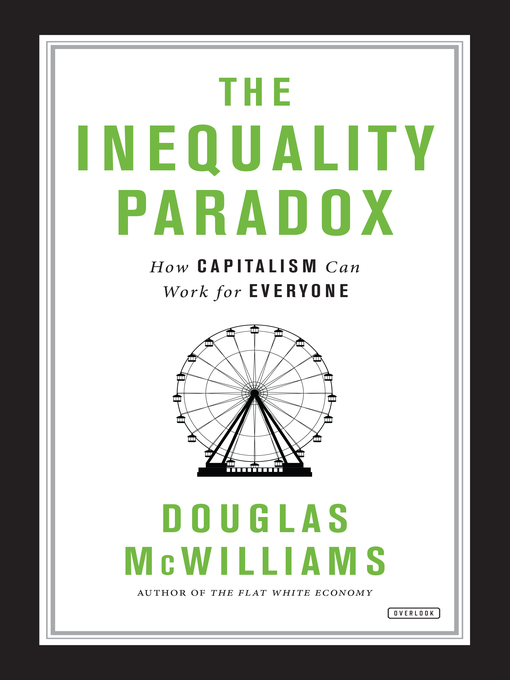In his illuminating new book, Douglas McWilliams argues that inequality is largely driven not by a conspiracy of the rich, as Thomas Piketty suggests, but by technology and globalization tat have led to the paradox of rising inequality even as worldwide poverty drops. But what are the implications of this seeming contradiction, and what ultimately drives the global distribution of wealth? What can societies do to reshape capitalism for the 21st century? Drawing on the latest research, McWilliams investigates how wealth is concentrated and why it persistently remains in the hands of very few. In accessible and thought-provoking prose, McWilliams poses a comprehensive theory on why capitalism has not met its match in the form of increasingly disparate income distribution, but warns of the coming wave of technological development—the fourth industrial revolution—that threatens to create a scarcity of unskilled jobs that will lead to even greater inequality and explains what governments can do to prepare for this.From the inquisitive layperson to the professional economist or policymaker, The Inequality Paradox is essential reading for understanding the global economy in its present state. McWilliams is a fresh, authoritative voice entering the global discussion, making this book indispensable in preparing for the imminent economic challenges of our changing world.
- Available now
- New eBook additions
- New kids additions
- New teen additions
- Most popular
- Try something different
- New Nonfiction Ebooks
- New Fiction Ebooks
- Stars Cook
- See all ebooks collections
- Available now
- New audiobook additions
- New kids additions
- New teen additions
- Most popular
- Try something different
- See all audiobooks collections
- Home & Garden
- Sports
- Health & Fitness
- Hobbies & Crafts
- Food & Cooking
- Celebrity
- News & Politics
- Travel & Outdoor
- Family & Parenting
- See all magazines collections


